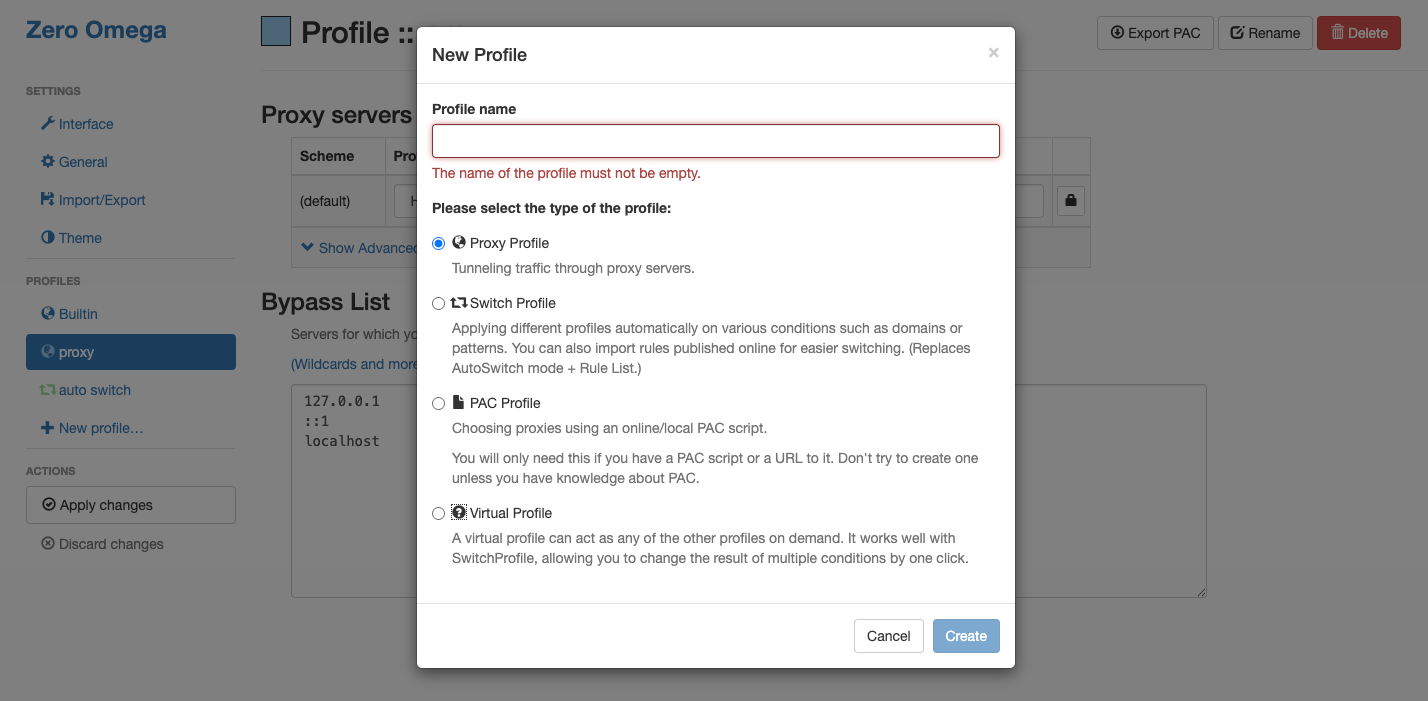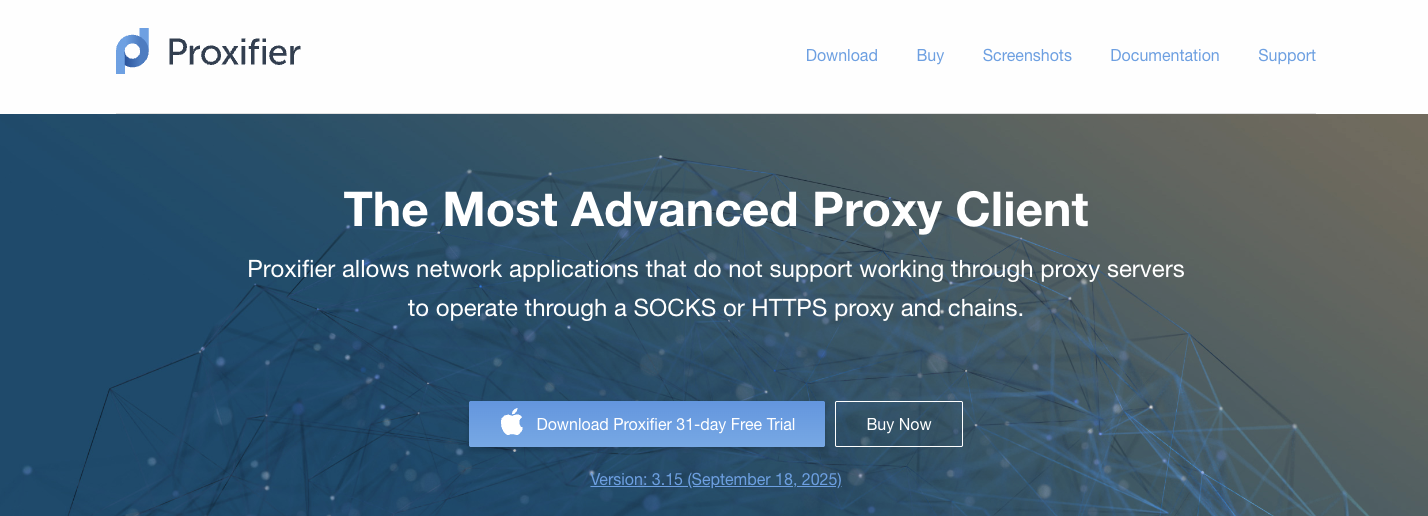A Twitch proxy routes your traffic through a server in a different location, masking your real IP address. This lets you bypass geo-restrictions, avoid server-side ads that standard blockers can't touch, and protect your privacy. The most reliable approach uses SOCKS5 proxies from ad-free regions like Poland, configured through Chrome or Streamlink.
Every time you switch Twitch channels, you get hit with a pre-roll ad. Sometimes two. And since late 2023, Twitch stitches those ads directly into the video stream using Server-Side Ad Injection (SSAI).
Your ad blocker can't see them. To uBlock Origin, the ad looks identical to the gameplay footage.
The fix isn't blocking — it's rerouting. When your connection comes from a country where Twitch doesn't serve ads, the stream arrives clean. No ads stitched in, no purple screen, no interruption.
I've tested proxy configurations across 30+ countries and hundreds of IP addresses over the past three years. This guide covers the five methods that actually work in 2026, from a two-minute browser setup to a Python script that rotates proxies automatically.
What you'll learn:
- Which proxy type to pick (SOCKS5 vs HTTP, and why it matters for HLS streams)
- Browser configuration in Chrome (two methods)
- System-wide proxy setup on Windows, macOS, and Linux
- Streamlink with proxy for fully ad-free viewing
- A Python script to test and rotate Twitch proxies automatically
- How to verify your setup isn't leaking DNS
Why Twitch Needs a Different Proxy Approach
Most proxy tutorials are generic. Connect to a proxy, browse the web, done.
Twitch is different. The platform streams video over HLS (HTTP Live Streaming), which opens multiple simultaneous connections for video segments, audio tracks, and metadata. A basic HTTP proxy handles some of those connections but drops others.
That's why SOCKS5 proxies are the baseline requirement. They handle all traffic types — HTTP, HTTPS, and UDP — without modifying request headers. Twitch's detection systems flag modified headers instantly.
The second problem is ad injection. Twitch doesn't serve ads from a separate server. The SSAI system splices ad video segments into the same m3u8 playlist as the stream itself. Your browser can't tell the difference between an ad segment and a gameplay segment.
A proxy from the right country solves this at the source. If Twitch's ad server has no ad inventory for the region your IP belongs to, it returns a clean playlist. No ads to splice in.
Which Proxy Type Works Best for Twitch
Not every proxy survives Twitch's detection. Here's what actually works, ranked by reliability.
| Proxy Type | Detection Risk | Speed | Best For |
|---|---|---|---|
| ISP (Static Residential) | Low | High | Daily streaming, multi-account |
| Residential (Rotating) | Very Low | Medium | Ad avoidance, geo-unblocking |
| Mobile 4G/5G | Very Low | Variable | Highest trust score, mobile use |
| Datacenter | High | Very High | Quick testing only |
ISP proxies hit the sweet spot. They use IP addresses assigned to real internet service providers, so Twitch treats them like normal household connections. But they run on datacenter hardware, so the speed matches.
Datacenter proxies are fast and cheap, but Twitch maintains blocklists of known datacenter IP ranges. You might get 20 minutes of use before a ban. Don't rely on them for regular viewing. If you keep hitting blocks, the issue is likely bot detection — Twitch uses the same systems for proxy and bot identification.
Residential rotating proxies work well for ad avoidance since each request can come from a different household IP. The tradeoff is higher latency, which can cause buffering on 1080p60 streams.
Best Proxy Locations for Ad-Free Twitch (2026)
Twitch's ad inventory varies by country. Some regions have zero ad contracts, which means clean streams every time.
Tier 1 — Zero ads consistently:
- Poland (PL) — strictest social media ad regulations in the EU
- Serbia (RS)
- Romania (RO)
- Ukraine (UA)
- Georgia (GE)
Tier 2 — Minimal ads (occasional pre-roll):
- Lithuania (LT)
- Latvia (LV)
- Costa Rica (CR)
- Kazakhstan (KZ)
Tier 3 — Reduced ads (~50% less than US/UK):
- Germany (DE)
- Argentina (AR)
- Hungary (HU)
Poland is the safest bet. EU advertising regulations there are strict enough that Twitch legally cannot serve certain ad formats. This has held steady since 2024.
Best method: Setup Proxies with Twitch in Google Chrome
Chrome doesn't have its own proxy settings panel. It inherits from the operating system by default, which means changing your system proxy affects every app on your machine. There are two clean ways around this.
Method A: Launch Chrome with a Proxy Flag (Fastest)
Chrome accepts a proxy server as a command-line argument. This creates a Chrome session that uses your proxy without touching system settings.
Windows — create a shortcut or run from PowerShell:

"C:\Program Files\Google\Chrome\Application\chrome.exe" --proxy-server="socks5://185.xxx.xxx.xxx:1080" --host-resolver-rules="MAP * ~NOTFOUND , EXCLUDE localhost"
macOS — run from Terminal:

/Applications/Google\ Chrome.app/Contents/MacOS/Google\ Chrome \
--proxy-server="socks5://185.xxx.xxx.xxx:1080" \
--host-resolver-rules="MAP * ~NOTFOUND , EXCLUDE localhost"
Linux:

google-chrome --proxy-server="socks5://185.xxx.xxx.xxx:1080" --host-resolver-rules="MAP * ~NOTFOUND , EXCLUDE localhost"
The --host-resolver-rules flag is critical. Without it, Chrome resolves DNS locally through your ISP, which leaks your real location to Twitch even though HTTP traffic is proxied. This flag forces all DNS queries through the SOCKS5 tunnel.
Open twitch.tv in this Chrome session and your connection goes through the proxy. Any other Chrome windows you opened normally stay on your direct connection.
Pro tip: Create a desktop shortcut with these flags baked in. Name it "Twitch Chrome" so you can launch a proxied session with one click.
Method B: Proxy SwitchyOmega Extension (Per-Site Rules)

If you want Chrome to proxy only Twitch traffic while everything else goes direct — without restarting the browser — install Proxy SwitchyOmega from the Chrome Web Store.
Click the extension icon: -> Options:

create a new profile called "Twitch-PL":

Protocol: SOCKS5
Server: 185.xxx.xxx.xxx
Port: 1080
Then switch to the Auto Switch tab and add a rule:

Condition Type: Host wildcard
Condition: *.twitch.tv
Profile: Twitch-PL
Set the default profile to "Direct" so everything except Twitch bypasses the proxy.

This approach is convenient for daily use. The tradeoff is that SwitchyOmega doesn't handle DNS-over-proxy as reliably as the command-line flag method. For maximum leak protection, Method A is safer. For convenience, Method B wins.
Technical Method: Setup System-Wide Proxy for Twitch Desktop App
The Twitch desktop app and OBS don't read browser proxy settings. If you need proxy coverage for those applications, configure it at the system level.
Windows 10/11
Open PowerShell as Administrator:
# Set system proxy
netsh winhttp set proxy proxy-server="socks=185.xxx.xxx.xxx:1080" bypass-list="localhost;127.0.0.1;*.local"
# Verify it's active
netsh winhttp show proxy
The bypass list keeps local network traffic direct. Without it, even localhost connections go through the proxy, which breaks local development servers and other tools.
To remove the proxy later:
netsh winhttp reset proxy
macOS
Open Terminal and set the proxy for your current session:
export ALL_PROXY="socks5://185.xxx.xxx.xxx:1080"
To make it permanent, add the line to your shell config:
echo 'export ALL_PROXY="socks5://185.xxx.xxx.xxx:1080"' >> ~/.zshrc
source ~/.zshrc
Or use System Settings → Network → your connection → Details → Proxies → enable SOCKS Proxy and enter your server details.
Linux (Ubuntu/Debian)
The cleanest approach on Linux is proxychains4. It lets you proxy specific applications instead of your entire system.
# Install
sudo apt install proxychains4
# Configure
sudo nano /etc/proxychains4.conf
At the bottom of the config file, add your proxy:
socks5 185.xxx.xxx.xxx 1080 username password
Now run any application through the proxy:
proxychains4 google-chrome
proxychains4 streamlink twitch.tv/shroud best
Everything launched through proxychains4 uses the proxy. Everything else stays direct. This is far safer than setting system-wide environment variables, which can leak proxy credentials to every process on your machine.
Proxifier: Route Only Twitch Through the Proxy

System-wide proxy settings affect every application on your machine. That's usually overkill. Proxifier (Windows/macOS) lets you create rules that route only specific applications through the proxy.
Download Proxifier from proxifier.com and add your SOCKS5 proxy under Profile → Proxy Servers.
Then create a proxification rule:
Name: Twitch Only
Applications: Twitch.exe; obs64.exe; streamlink.exe
Action: Route through [your SOCKS5 proxy]
Every other application bypasses the proxy entirely. This is the cleanest approach for streamers who need OBS and the Twitch desktop app proxied but want their browser and other tools on their regular connection.
Proxifier also shows real-time connection logs, so you can verify that Twitch traffic is actually hitting the proxy instead of going direct.
Expert method: Setup Proxies with Streamlink for Ad-Free Twitch
Streamlink is the most effective way to watch Twitch through a proxy. It bypasses the browser entirely, fetches the raw HLS stream, and pipes it into VLC or mpv.
Since Streamlink never loads Twitch's web player, there's no JavaScript execution, no client-side ad logic, and no SSAI interception point. The stream arrives as raw video segments.
The tradeoff is losing Twitch chat. Streamlink only handles video. To get chat alongside your stream, install Chatterino — a standalone Twitch chat client that connects independently. Run both side by side and you have the full Twitch experience without the web player's overhead or ads.
Install Streamlink
# Windows
pip install streamlink
# macOS
brew install streamlink
# Linux (Ubuntu/Debian)
sudo apt install streamlink
Basic Usage with Proxy
Pass your proxy directly on the command line:
# SOCKS5 proxy (recommended)
streamlink --http-proxy "socks5://user:pass@185.xxx.xxx.xxx:1080" twitch.tv/channel best
# HTTP proxy (fallback)
streamlink --http-proxy "http://user:pass@185.xxx.xxx.xxx:8080" twitch.tv/channel best
The best parameter picks the highest available quality. You can also specify 720p60, 480p, or audio_only.
Important: When using SOCKS5 with Streamlink, use socks5h:// instead of socks5:// if you want DNS resolution to happen on the proxy server side. This prevents DNS leaks:
streamlink --http-proxy "socks5h://user:pass@185.xxx.xxx.xxx:1080" twitch.tv/channel best
The h suffix tells the SOCKS5 client to send DNS queries through the proxy tunnel rather than resolving them locally.
Permanent Streamlink Configuration
Instead of typing proxy flags every time, create a config file.
Linux/macOS: ~/.config/streamlink/config Windows: %APPDATA%\streamlink\config
# Player
player=mpv
# Quality
default-stream=best
# Proxy (all Twitch traffic goes through this)
http-proxy=socks5h://user:pass@185.xxx.xxx.xxx:1080
# Low latency mode
twitch-low-latency
# Player buffering (adjust for your connection)
player-args=--cache=yes --demuxer-max-bytes=50MiB
Now just run streamlink twitch.tv/channel and it uses your proxy automatically.
Streamlink-TTVLOL Plugin
This plugin modifies Streamlink's Twitch handler to route playlist requests through servers in ad-free regions. The stream data itself flows direct — only the small playlist file gets proxied.
Install the plugin:
# Linux/macOS
INSTALL_DIR="${HOME}/.local/share/streamlink/plugins"
mkdir -p "$INSTALL_DIR"
curl -L -o "$INSTALL_DIR/twitch.py" \
'https://github.com/2bc4/streamlink-ttvlol/releases/latest/download/twitch.py'
# Windows (PowerShell)
$dir = "$env:APPDATA\streamlink\plugins"
New-Item -ItemType Directory -Force -Path $dir
Invoke-WebRequest -Uri "https://github.com/2bc4/streamlink-ttvlol/releases/latest/download/twitch.py" -OutFile "$dir\twitch.py"
Use it with a playlist proxy:
streamlink --twitch-proxy-playlist="https://lb-eu.cdn-perfprod.com,https://lb-eu2.cdn-perfprod.com" twitch.tv/channel best
If you subscribe to channels (and your sub already removes ads), exclude them from proxying:
streamlink --twitch-proxy-playlist-excludes="subscribedchannel1,subscribedchannel2" twitch.tv/channel best
Testing Proxies: Test and Rotate Proxies with Python
If you're managing multiple proxies — or you want to automatically find working ones before each session — this Python script handles the testing and rotation.
Proxy Health Checker
This script tests a list of proxies against Twitch's GraphQL API endpoint and returns only the ones that connect:
import requests
import time
from typing import List, Dict
TWITCH_GQL = "https://gql.twitch.tv/gql"
TWITCH_CLIENT_ID = "kimne78kx3ncx6brgo4mv6wki5h1ko"
def test_proxy(proxy: str, timeout: int = 8) -> Dict:
"""
Test a single proxy against Twitch's GQL endpoint.
Returns dict with proxy, status, and latency.
"""
proxy_url = f"socks5h://{proxy}"
proxies = {"http": proxy_url, "https": proxy_url}
headers = {
"Client-ID": TWITCH_CLIENT_ID,
"Content-Type": "application/json",
}
# Minimal GQL query — just checks connectivity
payload = [{"operationName": "TopGames_Streaming",
"variables": {"limit": 1},
"extensions": {"persistedQuery": {
"version": 1,
"sha256Hash": "d5c5df7ab9ae65c3ea527f0a2e8005fba6f01e28"
}}}]
start = time.time()
try:
resp = requests.post(
TWITCH_GQL, json=payload,
headers=headers, proxies=proxies,
timeout=timeout
)
latency = round((time.time() - start) * 1000)
return {
"proxy": proxy,
"status": "ok" if resp.status_code == 200 else f"http_{resp.status_code}",
"latency_ms": latency,
}
except requests.exceptions.Timeout:
return {"proxy": proxy, "status": "timeout", "latency_ms": None}
except Exception as e:
return {"proxy": proxy, "status": f"error: {type(e).__name__}", "latency_ms": None}
def test_all(proxy_list: List[str]) -> List[Dict]:
"""Test all proxies and return sorted results."""
results = []
for p in proxy_list:
result = test_proxy(p)
results.append(result)
status = result["status"]
latency = result.get("latency_ms", "—")
print(f" {p:30s} → {status} ({latency}ms)")
# Return only working proxies, sorted by latency
working = [r for r in results if r["status"] == "ok"]
working.sort(key=lambda x: x["latency_ms"])
return working
if __name__ == "__main__":
# Replace with your actual proxy list
my_proxies = [
"user:pass@pl-proxy1.example.com:1080",
"user:pass@ro-proxy2.example.com:1080",
"user:pass@rs-proxy3.example.com:1080",
]
print("Testing proxies against Twitch GQL...\n")
working = test_all(my_proxies)
print(f"\n{len(working)} working proxies found.")
if working:
best = working[0]
print(f"Fastest: {best['proxy']} ({best['latency_ms']}ms)")
This script sends a lightweight GraphQL query to Twitch — the same endpoint the Twitch website uses. If the proxy connects and Twitch responds with a 200, the proxy works. Anything else (timeout, 403, connection refused) means skip it.
Run it before each session to find your fastest working proxy:
pip install requests[socks]
python twitch_proxy_test.py
The requests[socks] extra installs PySocks, which adds SOCKS5 support to the requests library. Without it, the socks5h:// scheme won't work.
No DNS Leak: Verify Your Setup (DNS Leak Test)
A proxy is useless if your DNS queries still reveal your real location. This is the most common configuration mistake, and Twitch can use it to serve location-targeted ads even when your HTTP traffic is proxied.
Quick Browser Check
After configuring your proxy, visit ipleak.net in the same browser. Check three things:
- Your IP address — should show the proxy's IP, not yours
- DNS servers — should NOT show your ISP's DNS servers
- WebRTC detection — should be disabled or show the proxy IP
If your real IP appears in the DNS section, your proxy DNS setting is misconfigured.
Chrome fix (command-line method): Make sure you launched Chrome with the --host-resolver-rules="MAP * ~NOTFOUND , EXCLUDE localhost" flag from Step 1. Without it, Chrome resolves DNS locally even when HTTP traffic goes through the proxy.
Chrome fix (SwitchyOmega): SwitchyOmega doesn't reliably proxy DNS. If you see DNS leaks while using the extension, switch to the command-line launch method from Step 1, Method A.
Firefox users: Go to about:preferences → Network Settings and confirm "Proxy DNS when using SOCKS v5" is checked. Firefox handles this natively — it's one of the few browsers that does.
Streamlink DNS Verification
For Streamlink, the socks5h:// scheme handles DNS proxying automatically. Verify it's working by checking Streamlink's debug output:
streamlink --http-proxy "socks5h://user:pass@185.xxx.xxx.xxx:1080" --loglevel debug twitch.tv/channel best 2>&1 | head -30
Look for the proxy connection line in the output. If it shows your proxy IP connecting to Twitch's CDN servers, DNS is resolving correctly through the tunnel.
WebRTC Leak Prevention
WebRTC can expose your real IP even when a proxy is active. This only matters in browsers, not in Streamlink.
Chrome: Install the WebRTC Leak Prevent extension and set it to "Disable non-proxied UDP."
Firefox: Type about:config in the address bar, search for media.peerconnection.enabled, and set it to false.
Troubleshooting
"This content is not available in your region"
Your proxy is working, but the IP is still in a restricted region. Switch to a Tier 1 country from the list above (Poland, Serbia, Romania).
If using a residential proxy, your IP might be geo-located differently than expected. Verify your proxy's actual location at ipinfo.io before blaming your config.
Purple Screen of Death (Ad Blocker Detection)
Twitch shows this when it detects ad-blocking tools or modified players. Fixes:
- Switch to Streamlink (bypasses browser detection entirely)
- Use residential or ISP proxies — datacenter IPs trigger this more often
- Clear browser cookies and cache before switching proxy regions
- Disable any Twitch-related browser extensions you're not actively using
Buffering or Low Quality
Your proxy is too slow or too far away geographically. Streaming 1080p60 needs at least 8 Mbps of sustained throughput through the proxy.
Test your proxy speed by downloading a test file through it:
curl -x socks5h://user:pass@proxy:1080 -o /dev/null -w "Speed: %{speed_download} bytes/sec\n" https://speed.cloudflare.com/__down?bytes=10000000
If the speed is under 1 MB/s, switch to a closer proxy or upgrade to ISP proxies for better throughput.
"Proxy server refused connection"
Check the basics:
- IP address and port are correct
- Your proxy subscription is active and the IP hasn't expired
- Your firewall isn't blocking outbound connections on port 1080
- Try both
socks5://andsocks5h://— some proxy providers only support one
Twitch Proxy Gets Blocked After a Few Days
Twitch periodically updates its IP blocklists. If your proxy worked last week but doesn't today, the IP likely got flagged.
Rotating proxies solve this automatically — each session uses a different IP. For static proxies, contact your provider and request a replacement IP in the same region. For a deeper explanation, see our guide on how IP rotation works.
ISP proxies get flagged far less often than datacenter IPs. If you're burning through datacenter proxies every few days, switching to ISP proxies will save you time and money in the long run.
A Note on Responsible Use
Using a Twitch proxy for geo-unblocking and privacy is straightforward and widely practiced. But keep in mind that streamers earn revenue from ads. If you're watching someone regularly and using proxies to skip ads, consider subscribing to their channel or supporting them directly. Twitch Turbo ($11.99/month) also removes all ads platform-wide without any proxy configuration.
Wrapping Up
The reliable way to setup proxies with Twitch in 2026 comes down to three decisions: pick SOCKS5 over HTTP, choose an IP from a Tier 1 ad-free country like Poland, and proxy your DNS queries alongside your traffic.
For casual viewing, the Chrome proxy launch flag from Step 1 takes 30 seconds and works immediately. For streamers who need the desktop app proxied, Proxifier (Step 2) keeps everything else on your direct connection. For ad-free streaming without browser overhead, Streamlink with a SOCKS5 proxy (Step 3) is the cleanest solution.
If you manage multiple proxies, the Python health checker in Step 4 saves you from manually testing each one. Run it before your session, grab the fastest working proxy, and go.
One thing worth remembering: always verify your Twitch proxy setup isn't leaking DNS (Step 5). A proxy that doesn't cover DNS is a proxy that doesn't work for Twitch's geo-targeting.







![IPRoyal vs Oxylabs: Which provider is better? [2026]](https://cdn.roundproxies.com/blog-images/2026/02/iproyal-vs-oxylabs-1.png)

